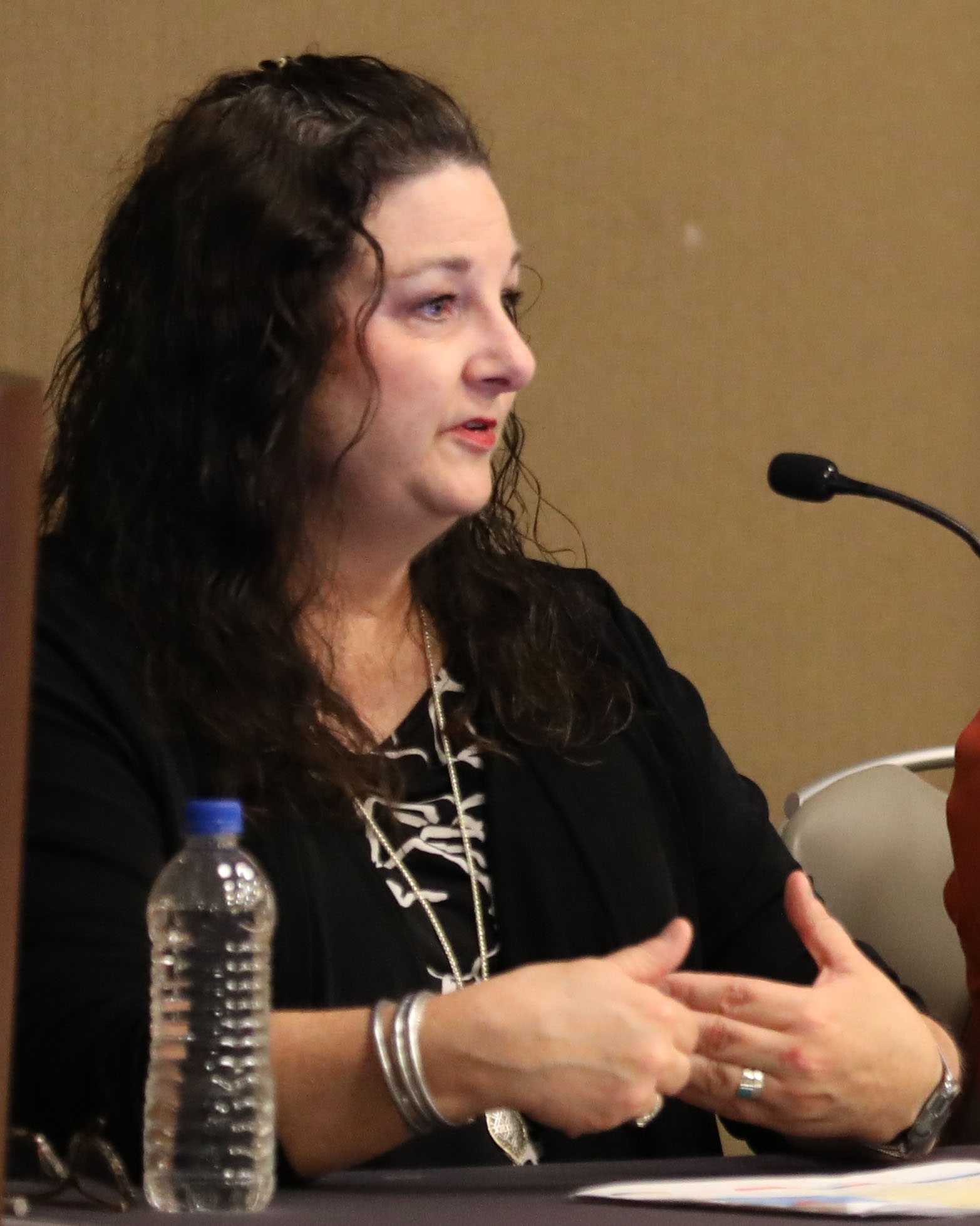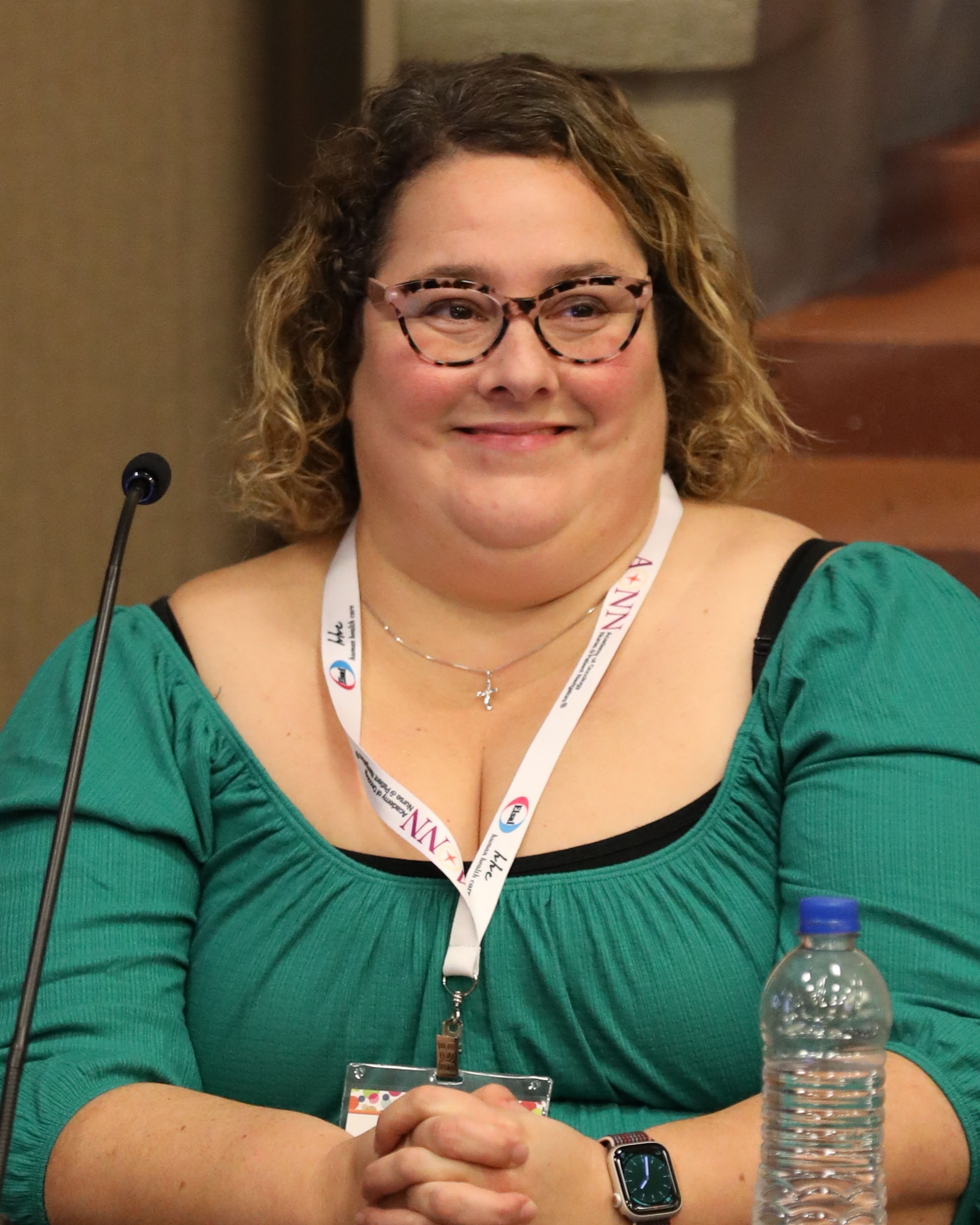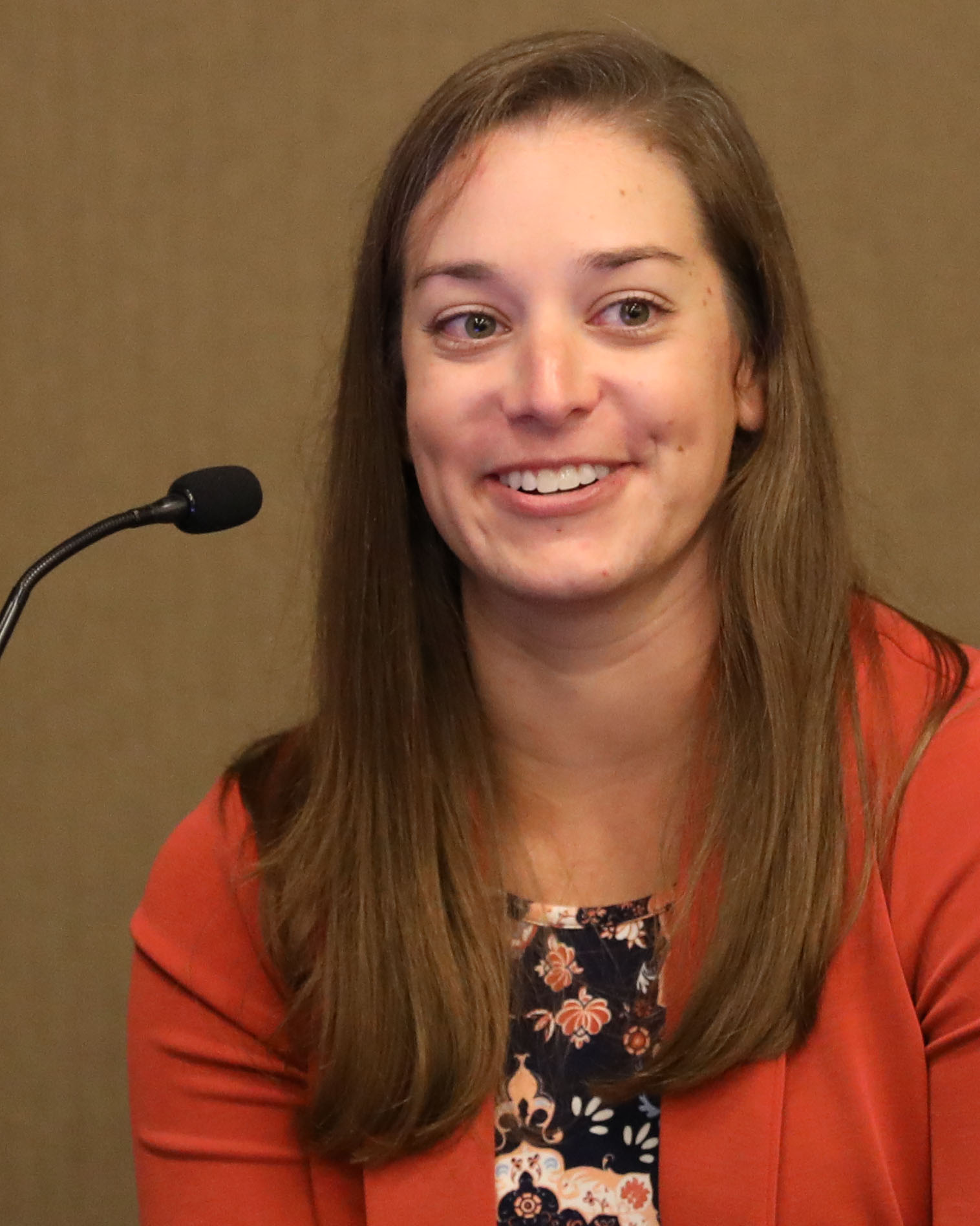


Kathy Pratt, BSN, RN, OCN, CBCN, ONN-CG; Clara Lambert, CPH, BBA, OPN-CG; and Caitlin Mauer, MA, MS, CGC
When it comes to cancer genetic testing and counseling, role delineation between oncology nurse navigators, patient navigators, and genetic counselors is vital to avoiding overlap of responsibilities and delivering quality patient care. While they each bring unique services to the table when coordinating and carrying out genetic testing on patients and their family members, their roles are also synergistic, and communication between them is paramount.
At the AONN+ 13th Annual Navigation & Survivorship Conference in New Orleans, Kathy Pratt, BSN, RN, OCN, CBCN, ONN-CG; Clara Lambert, CPH, BBA, OPN-CG; and Caitlin Mauer, MA, MS, CGC, described their roles as an oncology nurse navigator, patient navigator, and genetic counselor, respectively, and emphasized the importance of teamwork in the responsible provision of cancer genetic testing.
Ms Mauer, manager and certified genetic counselor at the Harold C. Simmons Comprehensive Cancer Center at the University of Texas (UT) Southwestern Medical Center in Dallas, provided a broad overview of genetics basics and explained that while all cancer is genetic, most is not inherited. Somatic (acquired) driver variants are the most common cause of cancer, while germline (hereditary) pathogenic variants make up about 5% to 10% of cancers (the majority of which occur at a younger age).
The Role of the Nurse Navigator
In her role as a genetic nurse navigator, Ms Pratt identifies patients who previously tested positive for inherited conditions like hereditary breast/ovarian cancer or Lynch syndrome, then follows up with them to ensure they are up to date on cancer screenings and/or surveillance.
She also provides education and resources to coordinate cascade testing for relatives. According to Ms Pratt, genetic nurse navigator at the Harold C. Simmons Comprehensive Cancer Center at UT Southwestern Medical Center, this is where navigators can play a critical role in reducing cancer incidence through interventions like active surveillance and preventive surgeries.
“Most of these mutations are autosomal dominant, which means if someone has it, any of their first-degree relatives has a 50% chance of also having that pathogenic variant or mutation,” she explained. “That’s key when you’re looking at cancer prevention: the time to find out you have a pathogenic variant is when you’ve got the chance to prevent cancer.”
She also provides education about hereditary cancer (to both patients/families and other healthcare providers), possible outcomes of testing, and methods for risk management, as well as reinforcement of information presented by the ordering clinician. Each pathogenic variant has a specific guideline (that also identifies who is appropriate for genetic testing), outlined in the National Comprehensive Cancer Network guidelines (nccn.org).
She regularly identifies resources and coordinates healthcare for noncompliant patients, including identifying any barriers that stand in the way of them receiving care.
Finally, the nurse navigator should provide emotional support to patients and their families when findings are inconclusive, not associated with actionable targets, and/or associated with a poor prognosis.
The Role of the Patient Navigator
When a patient encounters nonclinical barriers to receiving prescribed genetic testing, the patient navigator steps in.
“Often, in the discussions that a patient has with a nurse navigator, they express financial or other difficulties obtaining testing, or they even express that they’re struggling with the concept of testing,” said Ms Lambert, director of financial navigation at TailorMed, LLC, based in New York City. “So they’re usually referred to the patient or financial navigator at that point.”
In her role as a financial navigator, she researches potential assistance programs, reviews patient eligibility, and applies (along with the patient) for financial assistance.
“You have to develop a relationship with the patient so that you can have those difficult conversations about finances,” she said. “After you develop a relationship, you can review their eligibility, help them apply, and get those barriers off their plate for them.”
The Role of the Genetic Counselor
Oncology genetic counselors are masters-trained and board-certified, specifically in genetic counseling.
“In our program, we learn all the genetics and genomics and nitty-gritty science stuff, but we also learn how to communicate these principles to patients and help them make an informed decision about their healthcare,” Ms Mauer explained. “And we provide emotional support throughout the entire process.”
As a genetic counselor, Ms Mauer says that she relies heavily on both the nurse and patient navigator.
In their role, clinical oncology genetic counselors first review a patient’s personal and family history of cancer. Ms Mauer noted that her consults usually last about 45 minutes, in which time she takes a 3-generation pedigree and collects any patient risk factors.
After taking these factors into account, the counselor should make an informed decision as to whether the patient should undergo genetic testing: ie, do they qualify for it? Is there a concern for hereditary cancer in either the patient or their family members?
Next comes education about genetic testing options and impacts. If the patient were to pursue genetic testing, find out exactly how much information they want, and ascertain whether they are prepared to learn this information, she advised.
“Once they know it,” she said, “they can’t ‘unknow it.’”
According to Ms Mauer, people often overlook the fact that their results will also impact their family members, so be prepared to provide that additional layer of education about familial implications of testing, as well as emotional support.
If the patient is on board for testing, the genetic counselor coordinates the testing by collecting a sample (typically blood or saliva) and sending it out to a testing company. This can typically be done on the same day as the patient consult, with results usually delivered in about 2 to 3 weeks.
Finally, the genetic counselor discloses the results and provides management recommendations. At this point, Ms Mauer says she often turns to the nurse navigator to provide any necessary follow-up with the patient—giving them additional assistance with navigating the system as well as any necessary re-education about the implications of their results.
“Genetic counselors can work across the healthcare system, including working for genetic testing laboratories or performing research for nonprofits or commercial companies,” she noted. “But you can call us anytime for guidance in understanding what a result means.”
Ms Mauer added that direct-to-consumer testing is not comprehensive of all of the genes related to a disease, and most genetic tests performed by companies like 23andMe are limited to a few major genetic variants. If a mutation is found on one of these tests, it’s important to remind patients that clinical laboratory testing is needed to confirm any direct-to-consumer test results.
“Although it has its limitations, I’m very thankful to direct-to-consumer testing,” she said. “It brought genetics to the dinner table. People are aware of it, interested in it, and talking about it.”



